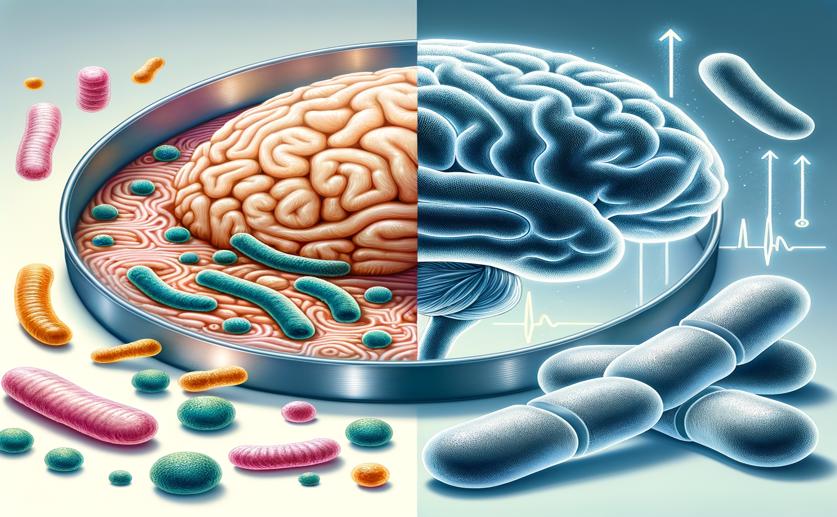
Alzheimer's Disease May Start Early Due to Unbalanced Gut Bacteria
Jenn Hoskins
11th September, 2024

Image Source: Natural Science News, 2024
Key Findings
- Researchers at the Nathan Kline Institute found that early-life disruptions in the gut microbiome might trigger Alzheimer's disease (AD) pathology
- The study suggests that antibiotic exposure in early life could worsen AD-like symptoms by affecting the gut microbiome
- The researchers propose that specific microbiological interventions might mitigate the progression of AD, offering new therapeutic strategies
References
Main Study
1) Alzheimer's Disease Has Its Origins in Early Life via a Perturbed Microbiome.
Published 10th September, 2024
https://doi.org/10.1093/infdis/jiae200
Related Studies
2) Molecular and cellular pathophysiology of preclinical Alzheimer's disease.
3) Relationship between dementia and gut microbiome-associated metabolites: a cross-sectional study in Japan.
4) Current understanding of the human microbiome.
5) Host demise as a beneficial function of indigenous microbiota in human hosts.



 1st September, 2024 | Greg Howard
1st September, 2024 | Greg Howard